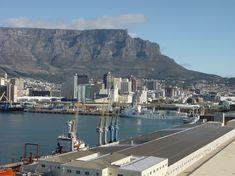
Importers in the UK this week warned that the repercussions of the South African port workers’ strike are likely to be felt until the end of next month.
South Africa’s minister of agriculture has warned of huge losses as the strike entered its third week. However, transport authority Transnet has implemented its final wage offer, which was rejected by workers last Friday. The body said there will be no further negotiations. As a result, workers were returning to work this week.
The strike has caused significant disruption to apple, citrus and avocado exports.
And the impact is being felt in the UK. Martin Dunnett, procurement director of Capespan UK, told freshinfo: “The strike is coinciding with the start of the citrus season, which has already been delayed because of rains. It is affecting early Navel orange and grapefruit sendings and so compounding availability issues. There is also a fairly slow supply of apples, on Golden Delicious and Granny Smith in particular.”
But Dunnett warned that potentially bigger problems were yet to come in recovering containers that have been used to store fruit and dealing with the issue of fruit packed at source that has been date coded. He said: “At Capespan, we have been putting fruit on conventional vessels but this is not the case for everyone. Also, those using high-cube containers would have to repalletise to use reefers.”
Mitchell Brooke, logistics co-ordinator for the Citrus Growers’ Association of Southern Africa, insisted that his members had done their best to work around the strike. He said: “We received prior notification of this strike and have done what we could to manage the problem as much as possible on behalf of the citrus industry. As the worst affected shipping sector was expected to be containerised shipping, we communicated to shippers that shipping their fruit in break-bulk shipments would be a safer option. More break-bulk vessels have thus been utilised and although this form of shipment is more expensive, at least we have managed to keep the fruit moving.”
The South African Avocado Growers’ Association said that some supermarket programmes had been cancelled or supplies airfreighted at quadruple the cost.
South Africa’s minister of agriculture Tina Joemat-Pettersson warned that the fruit export industry is now suffering serious losses. She said: “Until last week, we could still cope with the disruption, but this week we are expecting serious losses.”
Transnet executive Mark Gregg-Macdonald said the authority’s final offer reached the limit of what is reasonable and affordable in the economic climate.
And shipping line Maersk has defended its decision to implement a congestion surcharge during the strike, which caused uproar in the fresh produce export industry. Exporters’ group Fruit South Africa and its members rejected the surcharge and asked growers and exporters to refuse to pay it.
Hortgro spokesman Erik van Papendorp said collective action will follow the strike to recover the cost of the disruption from the guilty parties. He added: “Thereafter, we will work with other sectors of the industry, shipping lines and stakeholders to implement a plan of action to limit the risk of a repeat of the circus we witness now.”
The timing of the strike has complicated an already difficult southern hemisphere season, with lemons running short.
Observers say it is likely that the strike will run out of steam towards the end of this week.



